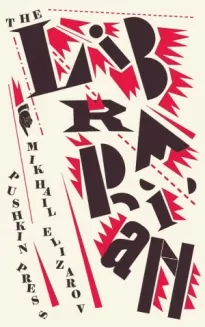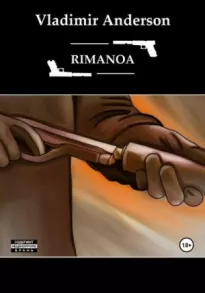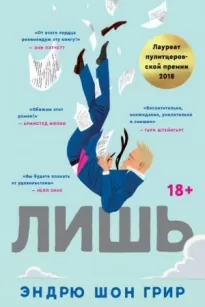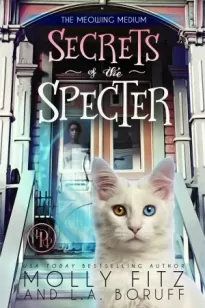The Librarian

- Автор: Михаил Елизаров
- Жанр: Современная проза / Социальная фантастика
- Дата выхода: 2015
Читать книгу "The Librarian"
THE OTHER READERS
FROM THURSDAY TO SUNDAY we said farewell to our fallen comrades. Although we cremated them on the same day, we buried them one at a time.
I didn’t attend the cremation. The others came for me when the urns had already been taken to the cemetery. Fearing acts of aggression, Margarita Tikhonovna did not want me to leave the apartment at all, but I felt that it would be unfair if the readers on guard with me were not able to see their friends off on their final journey. So each time I put on the chain with the Book and went down to our RAF, and we drove off to the cemetery.
The funerals were closely guarded. Close to the wall in which the urns were immured, in the next row along, half a dozen gravediggers were hard at work. I kept glancing at them in alarm, until I recognized two of the cemetery employees as Ievlev, armed with a spade, and Kruchina with a shovel. Igor Valeryevich nodded to me and Nikolai Tarasovich gestured to me reassuringly, as if to say that everything was under control.
However, the wake on Sunday evening was a collective one. It was held at Margarita Tikhonovna’s place in order not to attract any unnecessary attention to my apartment. Timofei Stepanovich put on his army decorations, and the former shock worker Kruchina wore his Order of the Red Banner.
I don’t remember much about the posthumous tributes paid to the fallen Shironinites. My constant terror was amplified by the funeral feast that we were celebrating, and I tried to stun it using vodka, like dynamite. It didn’t help. All my excruciating thoughts floated belly-up on the very surface of my mind and my head spun crazily as if it were tumbling off the block after being severed from my neck. I puked my guts up in Margarita Tikhonovna’s corridor and in the RAF and Tanya wiped my wet mouth with a napkin. I didn’t have the strength to apologize: I couldn’t even speak.
A hungover Monday was the beginning of the second week of my life as a librarian. I got to know the other readers better. On that day Nikolai Tarasovich Ievlev was on duty with me. He was a taciturn man and only livened up when the subject of conversation was the Book.
Ever since his young days he had been a kettlebell lifter and all-round sportsman, and this had given him his mighty physique. In his pre-Gromov days he used to run amok after drinking and overturn cars in the street all on his own. Only the Book had given Nikolai Tarasovich the gravitas that he needed. He worked as a blacksmith.
The deep scar on his face was a memento of the Battle of Neverbino. They said it was left by the hook of the legendary crane driver Dankevich, the female berserker from Mokhova’s clan.
Ievlev listened attentively to the story of my life and, as it turned out, drew his own special conclusions—in the morning he brought round a chest expander and two sixteen-kilogram kettlebells.
“But the most important thing is not to forget about the neck. Your neck’s as thin as a finger,” Ievlev concluded with a sigh. “Go into a wrestler’s bridge, support yourself with your head, and then up and down until you get tired. Pump those muscles every day. The neck’s the most important thing,” he lectured me.
I nodded, but Nikolai Tarasovich clearly couldn’t spot the required eagerness in my eyes and he added this cautionary example:
“One of the readers from Kolontaysk took a wallop from a club on his helmet. His skull wasn’t damaged, but his neck vertebrae couldn’t take it…”
On Sasha Sukharev’s day on guard he presented me with a Solingen cut-throat razor.
“If you get the hang of it, the other guy will have to change the photo in his passport at the very least, because he won’t have any nose, and he’ll be missing one cheek and his ears too,” Sukharev said, smiling radiantly like Yuri Gagarin. “Under the laws of the Russian Federation, this is not considered a dangerous weapon,” he explained. “It’s perfectly fine for carrying about, concealed on your person… You need something that the pigs can’t haggle about— a hammer or a nice long screwdriver is good. Slicing through a sheepskin coat with a screwdriver is a piece of cake, and if the pigs nab you with it, everything’s in order—I’m going to my girlfriend’s place to put up a cupboard. A screwdriver’s not that easy to see in the dark either. It’s quick: pull it out, jab, and they’ve got a hole in their liver or their throat. A handy kind of thing.”
Sukharev came from a failed proletarian family, and he was well on the way to spending his years behind bars. From the sixth year in school he was in the register at the militia’s children’s office, and the only reason he wasn’t put away as juvenile offender was that the local militiaman was distantly related to his mother.
Prison caught up with Sukharev after the army. He was put inside for two years for hooliganism. Fortunately, in the prison camp he crossed paths with the reader Pavel Yegorov.
Sukharev was released and for the first month he led a dissipated life, but then, as if by magic, he miraculously came to his senses. Naturally, it wasn’t the reforming effect of the prison system that had re-educated him. Yegorov, who had been released earlier, had been in time to take part in the Battle of Neverbino, and when the reconstituted Shironin reading room was actively recruiting new members, he remembered Sukharev and found him, and the Shironinites acquired a faithful comrade.
That recruitment of early 1997 also brought in Grisha Vyrin, and the recently deceased Vadik Provotorov…
Grisha Vyrin’s family came from a long line of Old Believers. Although the last two generations had not had any religious connections, he was genetically predisposed to life in a closed community, secrecy and a sense of being one of the chosen.
Grisha recovered in record time. In a week the swelling was gone and he was able to move again as he waited for the cracks in his vertebrae to close up. The doctors reassured us by saying that Grisha had got off lightly and in a month or six weeks he would be on his feet again.
I visited him quite often in the hospital. In the course of one of our conversations it turned out that during his college years Grisha had been a member of the Club of the Jolly and Ingenious team.
“There was this song of Anna German’s— ‘Hope’. I composed a variation, on the theme of the oligarchs:
There was a long squeal of brakes
In front of the expensive shop.
Sad Jewish eyes
Gave me advice from the limousine:
‘You just have to learn to lie,
And be a hard-core cocksucker,
For life sometimes to give you
A fresh grouse with sweet pineapple.’”
Grisha laughed bitterly. “Our captain rejected it—said it was too coarse… Alexei, you’d have taken that rewrite of mine, wouldn’t you? I mean, when you were the captain?” he suddenly asked with a sickly kind of hope.
I would have turned the song down as well, and it wasn’t just a matter of the “hard-core cocksucker”—although that, too, especially in that disastrous combination with those “Jewish eyes” giving out repulsive advice. But what did my truth and the morals of student slapstick matter? I remembered how Vyrin had given me his protective jacket without even a second thought, and I knew that he would have given his life for me and the reading room without a second thought too. And so I said:
“Of course I would! It’s a fine parody. It’s just that your captain didn’t have any sense of humour.”
“Thanks, Alexei,” Vyrin said with a happy smile and shook my hand.
Denis Lutsis was a genuine aksakal of the Gromov world, a reader with a decade of experience. The tiny Samara reading room from which he had emerged was essentially a family concern. The Lutsises— Denis’s parents and close relatives—were Russified Balts. All in all there were eleven of them, and they owned a Book of Memory. Their life of quiet contentment was shattered when their Book was stolen and the older members of the clan were killed. Lutsis’s parents and uncle fell in the battle of Neverbino. Denis survived the battle, but he had been orphaned overnight. He decided not to go back home. His surviving female cousins and aunt attached themselves to the new Samara library. Denis fell in with the Shironinites. He wasn’t crushed by his heavy loss. He graduated from the history faculty at university and taught in a road-transport technical college.
Denis was a complicated character, easily wounded by a clumsily spoken word, although he didn’t usually give any sign of it, preferring to keep his grievances to himself. I quickly learned to recognize this condition of his. If Denis Lutsis suddenly became morbidly pedantic and emphatically polite and looked off to one side during the conversation, it was clear that he had been deeply offended by something. But you only had to ask him what was wrong for him immediately to open up and inform you in a punctiliously bitter manner what exactly had hurt his feelings. For example, Lutsis was dating Svetlana Vozglyakova, but for some unknown reason he made a terrible secret out of it, although everyone knew about their relationship. Even so, he categorically refused to accept any joking on the subject. Fortunately Lutsis didn’t bear grudges, and after an apology he thawed immediately.
Like Marat Andreyevich, Lutsis sometimes shared his experience of the Book with me.
“About four years ago I realized that, if I wanted, I could reproduce the text in my mind without the help of the Book. I tried to do it, setting a kind of scrolling text moving in my head. Nothing happened. I thought I’d got the words mixed up, but I checked with the Book—and everything was right. So words that arose in my mind without their graphic equivalent didn’t work. I tried reciting the text out loud. After all, at the group’s sessions only one person actually reads, and the Book affects the others via the sound. Another failure. Without the Book itself, the sound doesn’t work…”
Thanks to Lutsis I rapidly got to know all the names in the Gromov world and found my way round all its twists and turns. Our relationship was one of friendship, without the slightest hint of any librarian–reader line of subordination.
Looking at Lutsis, I simply couldn’t understand why Margarita Tikhonovna’s choice for the successor to Uncle Maxim had fallen on me. Decisive, experienced, daring, privy to the mystery of the Books from the days of his youth, Lutsis would have made an entirely worthy replacement. Lutsis himself used to say that he wasn’t suited to a management role, so he acted as my mentor as far as he was able and time allowed.
In general, from the very first days the Shironinites did everything to keep my confinement as pleasant as possible and make my life comfortable. The Vozglyakov sisters hung new wallpaper in the apartment and painted the window frames and doors. Fyodor Ogloblin laid new tiles in the bathroom and kitchen, put in new bathroom fixtures, installed a new gas geyser and cooker, and started glazing the balcony. So I wasn’t lying when I told my parents that the renovation work was going full steam ahead and there was enough money for everything.





